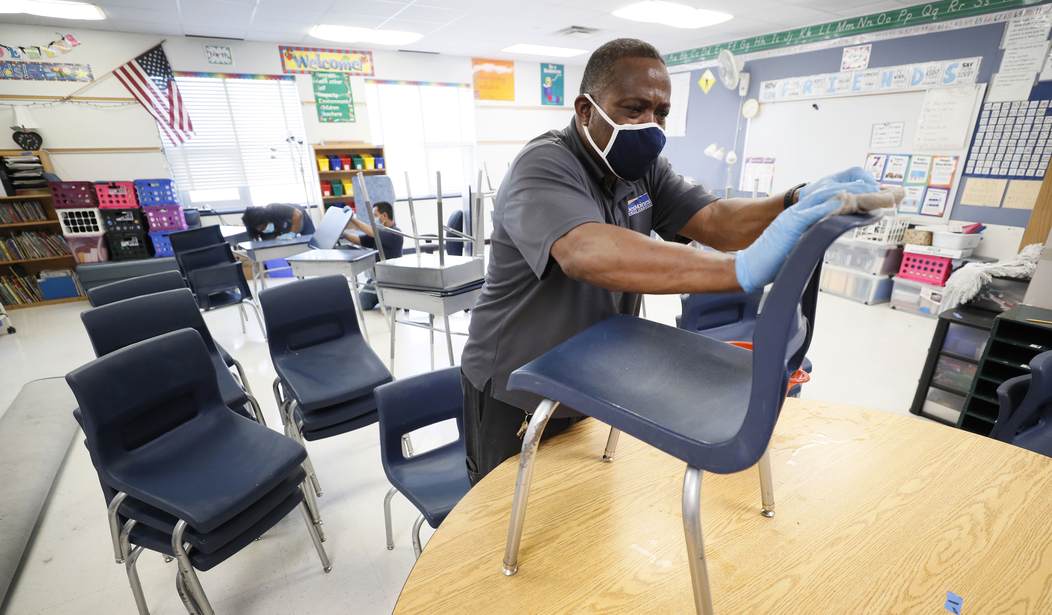Americans are well versed in the consequences for physical health from COVID-19. Newspapers brim daily with scary headlines alarming us of any risk that it might pose, no matter how minor or remote. But there are other nasty and less often discussed consequences brought on by this pandemic and by our collective reaction to it -- whether that's due to people locking themselves up at home out of fear of encountering others or government-ordered lockdowns.
These consequences deserve our attention. They are real and poignant, and they disproportionately affect society's least powerful. Victims of the current pandemic response have little political or economic voice. So, let me speak for them:
They are the small-business owners who have seen their businesses destroyed by the lockdowns. They are the owners of restaurants and small shops that never reopened, even when the lockdowns were partially lifted.
They are the small-business owners who don't know how long they can survive with so few customers, but they know that they won't survive another lockdown.
They are essential workers who have continued to labor hard to provide our health care and our groceries, even when their children were stranded at home in spite of overwhelming evidence that schools are not a locus of COVID-19 infection.
They are the countless children who have been dramatically falling behind in school. They are the children whose math skills are plummeting. They are the kids with disabilities and the English-language learners whose academic performances are collapsing. They are the kids who've dropped out of school entirely. They are the kindergarteners who sit in front of a screen for hours and have not experienced the joy of playing with other kids during recess, ever.
They are the college students who are locked in their dorms and "learning" online with little contact with peers or professors. They are all the other college kids who simply drop out of school to take care of their families.
Recommended
They are all the children whose anxiety levels have dramatically soared. They have lost hope; they are depressed. Many are thinking of suicide. Some even commit it.
They are the elderly -- our parents and grandparents -- who haven't seen their children and grandchildren in almost a year.
My own two children and I have not been able -- for the past eight months -- to visit their grandparents in France, or even those in California. Some of these grandparents live alone. The isolation from family and friends has been particularly brutal.
They are the medical patients dying alone. They are the patients receiving treatments, or bad news, from their doctors with no family support.
They are the people whose routine health screenings have been suspended -- many of whom, as a result, will prematurely die. They are the people who don't get their vaccines, medications, allergy shots or root canals.
They are the people who "celebrate" birthdays, holidays and other important milestones alone. They are people who cannot attend loved ones' funerals. They are the young couples who have to postpone their weddings or their children's baptisms.
They are the ones suffering from anxiety whose therapies are suspended. They are the people of all ages who, as a result, tragically decide to end their lives. They are the people who numb the pain of isolation with drugs or alcohol abuse. They are the people with addictions whose rehab centers are closed. There are the women and children locked in with their abusers.
They are the ones who have lost jobs and who wait forlornly in long unemployment lines. They have no idea whether they'll be employable at the end of this ordeal. They are the workers who will give up on joining the labor force.
They are today's young people, who will shoulder the burden of an irresponsible fiscal response to this pandemic, and the unfathomable debt it created.
These victims deserve a voice. They should be heard. But sadly, sounds of their plight fall on the deaf ears of some affluent and influential policymakers, many of whom are much less affected.
Avoiding COVID-19 at all costs is a valid path for some, but we cannot ignore the suffering that this pandemic and our collective response to it inflict on millions of fellow citizens. Throwing money at them won't change the reality of their current lives.
Veronique de Rugy is a senior research fellow at the Mercatus Center at George Mason University.

























Join the conversation as a VIP Member